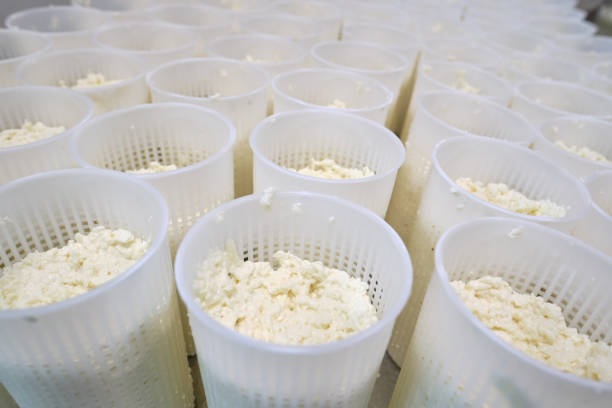Save big on top-quality bulk tapioca starch at wholesale prices! Quality guaranteed, perfect for your commercial needs.
Affordability and Quality in Choosing a Tapioca Starch Wholesaler
When selecting a tapioca starch wholesale supplier, prioritizing affordability and quality is essential. Competitive pricing ensures cost-effectiveness for businesses, while high-quality products guarantee consumer satisfaction. A balance of both factors fosters long-term partnerships and enhances overall brand reputation, making it crucial for companies to carefully evaluate their sourcing options.
What Tapioca Starch Is
Tapioca starch is a unique carbohydrate derived from the cassava root, predominantly cultivated in tropical regions. It appears as a fine, white powder and serves various culinary purposes, including thickening sauces and desserts. Gluten-free by nature, it’s popular among those seeking alternative ingredients for cooking and baking applications.
Tapioca Starch in Both Industries and Households
Tapioca starch serves a variety of functions in both commercial and domestic settings. In industries, it’s utilized as a thickening agent in food products and as an ingredient in textiles. Households often employ it for cooking, gluten-free baking, or as a natural cleaning solution due to its versatility and efficiency.
Why Quality Matters When It Comes to Tapioca Starch
Quality is crucial for tapioca starch as it directly affects the texture, taste, and overall performance in culinary applications. High-quality tapioca starch ensures consistent results, enhancing dishes with the desired thickness and smoothness. Inferior quality can lead to undesirable flavours or textures, undermining the intended recipe outcome.
Cost-Efficiency of Bulk Buying
Purchasing items in bulk often leads to significant cost savings. By acquiring larger quantities, consumers and businesses can benefit from reduced unit prices, lower shipping costs, and exclusive discounts. This strategy minimizes frequent shopping trips, ultimately lowering overall expenses while also lessening environmental impact through decreased packaging waste.
Convenience Brought by Bulk Purchases
Buying in bulk offers significant convenience, allowing consumers to stock up on essential items with fewer trips to the store. Not only does this save time and reduce travel expenses, but it often leads to lower prices per unit, making it a practical choice for budget-conscious shoppers seeking efficiency.
Influence of Bulk Buying on Carbon Footprint Reduction
Bulk buying significantly contributes to reducing carbon footprints by minimizing packaging waste and transportation emissions. Larger orders lead to fewer trips, decreasing fuel consumption. Additionally, it encourages sustainable practices among suppliers, promoting eco-friendly products. Collectively, these actions foster an environmentally responsible consumer culture that prioritizes sustainability while fulfilling purchasing needs.
Impressive Characteristics of High-Grade Tapioca Starch
Premium tapioca starch boasts excellent thickening abilities, smooth texture, and emulsifying properties, making it ideal for various culinary applications. Its gluten-free nature enhances its appeal, while its cleanliness and neutral flavour facilitate seamless incorporation into diverse recipes and food products.
High- and Low-Quality Tapioca Starch
High-quality tapioca starch appears bright white, is finely textured, and has consistent granules. It dissolves easily in liquids and yields a smooth consistency when cooked. Low-quality variants may appear off-white or yellowish, have uneven textures, clump together poorly, and produce a grainy texture in dishes instead of a creamy finish.
Tips on How to Verify the Quality of Tapioca Starch Products
To ensure tapioca starch quality, examine product packaging for certifications and origin details. Check for a consistent fine texture and whiteness. Evaluate moisture content by feeling; it should be dry. Additionally, prioritize purchasing from reputable brands or suppliers to minimize the risk of impurities or substandard products affecting performance.
Techniques for Finding Cost-Effective Tapioca Starch Wholesalers
To locate affordable tapioca starch wholesalers, explore online marketplaces and industry directories. Networking at trade shows can also yield valuable connections. Assess reviews for quality insights and compare prices among suppliers. Utilize social media platforms to discover hidden gems, while leveraging bulk purchasing for better deals on larger orders.
Strategies for Bargaining and Securing Discounts on Bulk Orders
Effective strategies for negotiating discounts on bulk orders include conducting market research to understand pricing trends, building rapport with suppliers, and leveraging competitive offers. Communicating your needs and long-term potential as a customer can also persuade sellers to provide better terms in exchange for larger volume commitments.
List of Credible and Affordable Tapioca Starch Suppliers Worldwide
Here’s a compilation of reliable and cost-effective tapioca starch suppliers from around the globe. This list features companies known for their quality, affordability, and commitment to customer satisfaction, helping businesses source high-grade tapioca starch while maintaining budgetary constraints.
Brief Descriptions of Their Product Quality, Pricing, and Customer Testimonials
Their products are consistently praised for high quality, with customers noting exceptional performance. Pricing remains competitive, offering great value without sacrificing standards. Client testimonials highlight satisfaction with both the product features and responsive customer service throughout the purchasing process.
Kraft tapioca and tapioca starch are not identical. While Kraft tapioca refers to a specific brand of tapioca, typically in pearl form used for pudding or desserts, tapioca starch is the powdered product derived from cassava roots, utilized as a thickening agent or gluten-free flour alternative.
Trader Joe’s does not consistently stock tapioca starch among its products. While they frequently offer a variety of speciality ingredients, availability can vary by store and season. Customers interested in using tapioca starch for cooking or baking may need to explore alternative grocery stores or online options.
Tapioca flour and tapioca starch are often used interchangeably, but they can have slight differences. Tapioca flour is made from the whole cassava root and retains some fibre, while tapioca starch is specifically extracted from the starchy part. Their applications in cooking and baking may vary accordingly.
When seeking a substitute for tapioca starch, consider cornstarch as an effective option due to its similar thickening properties. Another alternative is arrowroot powder, which works well in sauces and puddings. Additionally, potato starch can be used; however, adjustments in quantities may be required based on specific recipes.










